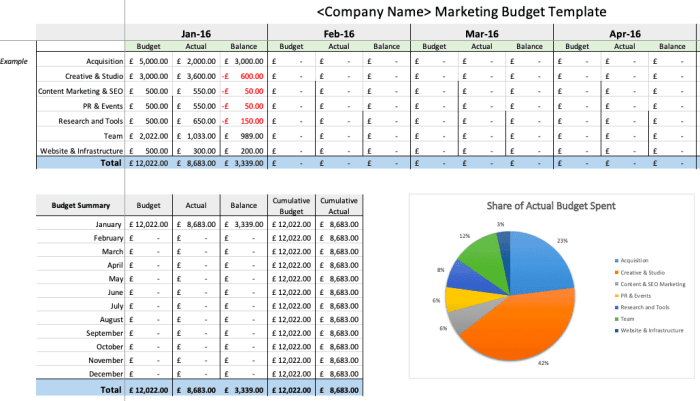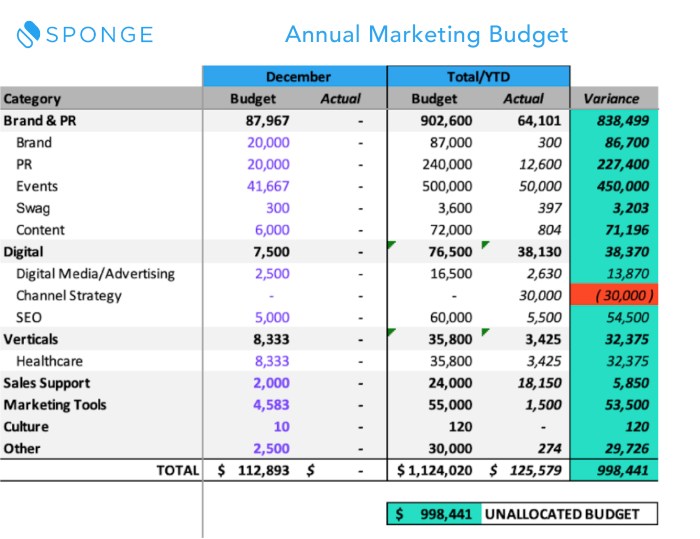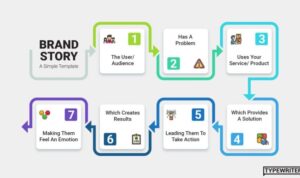Developing a Marketing Budget dives deep into the world of business finances, offering insight into the strategic planning essential for success. From understanding market dynamics to making impactful decisions, this topic is a must for any aspiring entrepreneur or seasoned business owner.
As we explore the intricacies of budget allocation and the role it plays in achieving marketing goals, get ready to embark on a journey of financial acumen and strategic thinking.
Importance of Developing a Marketing Budget
Having a well-thought-out marketing budget is crucial for businesses as it serves as a roadmap for allocating resources effectively and efficiently. It helps companies plan their marketing activities, track expenses, and evaluate the return on investment.
Impact on Decision-Making Processes
A marketing budget plays a significant role in decision-making processes within a company by providing a clear framework for prioritizing initiatives. It helps management determine where to allocate funds based on the expected impact on the overall marketing strategy. Additionally, having a budget in place allows for better financial control and helps prevent overspending.
Achieving Strategic Marketing Goals
The role of a marketing budget in achieving strategic marketing goals cannot be overstated. By setting aside specific funds for various marketing initiatives, companies can ensure that resources are allocated in alignment with their objectives. This enables businesses to focus on activities that are most likely to drive results and contribute to the overall success of the marketing strategy.
Factors to Consider When Developing a Marketing Budget

When developing a marketing budget, there are several key factors that need to be taken into consideration to ensure the success of the marketing efforts. These factors play a crucial role in determining the allocation of resources and the overall effectiveness of the marketing strategy.
Significance of Market Research, Developing a Marketing Budget
Market research is a fundamental factor that influences the development of a marketing budget. By conducting thorough market research, businesses can gain valuable insights into their target audience, competitors, and industry trends. This information is crucial in determining the most effective marketing channels, messaging, and tactics to reach and engage with potential customers. Without market research, businesses risk allocating their budget ineffectively and missing out on valuable opportunities for growth.
Impact of Business Objectives and Target Audience
Business objectives and target audience are two key factors that significantly impact budgeting decisions. The goals and objectives of the business will determine the overall marketing strategy and the resources needed to achieve them. Understanding the target audience is essential in identifying the most relevant and impactful marketing tactics to reach and resonate with potential customers. By aligning the budget with the business objectives and target audience, companies can optimize their marketing efforts and maximize the return on investment.
Strategies for Creating an Effective Marketing Budget

In order to create an effective marketing budget, it is crucial to set realistic and achievable goals that align with the overall business objectives. Different budgeting methods can be employed to determine the appropriate allocation of resources, such as percentage of sales, competitive parity, and objective and task methods. Let’s explore these strategies further below.
Setting Realistic and Achievable Marketing Budget Goals
- Start by analyzing past marketing performance and outcomes to establish a baseline for future goals.
- Consider the overall business objectives and how marketing efforts can contribute to achieving them.
- Set specific, measurable, attainable, relevant, and time-bound (SMART) goals to ensure clarity and focus.
- Regularly monitor and adjust budget goals based on market trends, competitor activities, and internal performance metrics.
Different Budgeting Methods
- Percentage of Sales: Allocate a fixed percentage of sales revenue towards marketing activities, ensuring that investments scale with business growth.
- Competitive Parity: Determine marketing budgets based on industry benchmarks and competitors’ spending levels to maintain market share and competitiveness.
- Objective and Task Methods: Identify specific marketing objectives and the tasks required to achieve them, then allocate budget resources accordingly.
Successful Marketing Budget Allocation Strategies in Different Industries
| Industry | Allocation Strategy |
|---|---|
| Technology |
|
| Retail |
|
| Healthcare |
|
Tools and Resources for Managing a Marketing Budget: Developing A Marketing Budget
When it comes to managing a marketing budget effectively, having the right tools and resources can make all the difference. From software platforms to marketing analytics, these resources play a crucial role in optimizing budget allocation and measuring performance.
Software Tools for Budget Tracking and Management
- Utilize budget tracking software like QuickBooks or FreshBooks to keep a close eye on your marketing expenses.
- Consider using project management tools such as Asana or Trello to plan and track marketing campaigns within budget constraints.
- Explore specialized marketing budget management platforms like Allocadia or Scoro for comprehensive budget planning and tracking features.
Role of Marketing Analytics in Optimizing Budget Allocation
- Marketing analytics tools like Google Analytics or HubSpot provide valuable insights into campaign performance and ROI, helping you allocate budget effectively.
- Use data-driven insights to identify high-performing marketing channels and allocate budget accordingly for maximum impact.
- Implement A/B testing and conversion tracking to optimize budget allocation based on real-time performance data.
Tips for Monitoring and Adjusting a Marketing Budget
- Regularly review your marketing budget against actual expenses to identify any discrepancies or overspending.
- Set up alerts or notifications within budget tracking tools to stay informed about any budget deviations or unexpected expenses.
- Be prepared to adjust your budget allocation based on the performance of different marketing channels, reallocating funds to maximize ROI.





